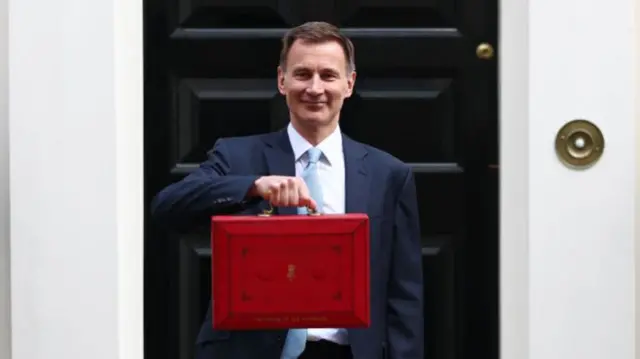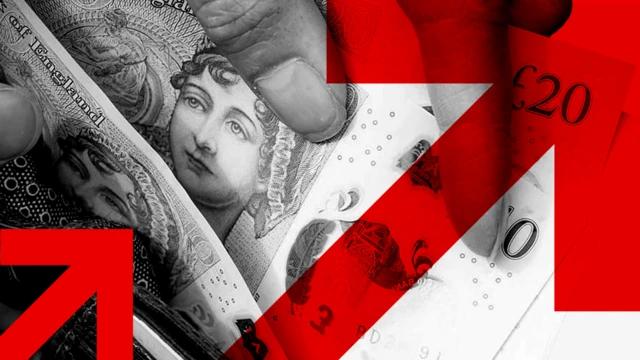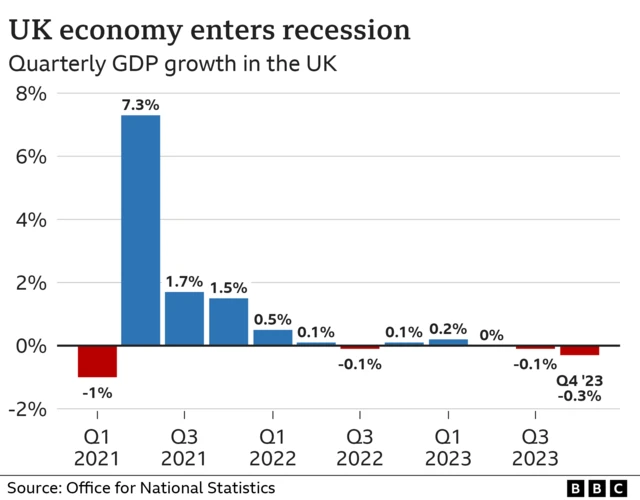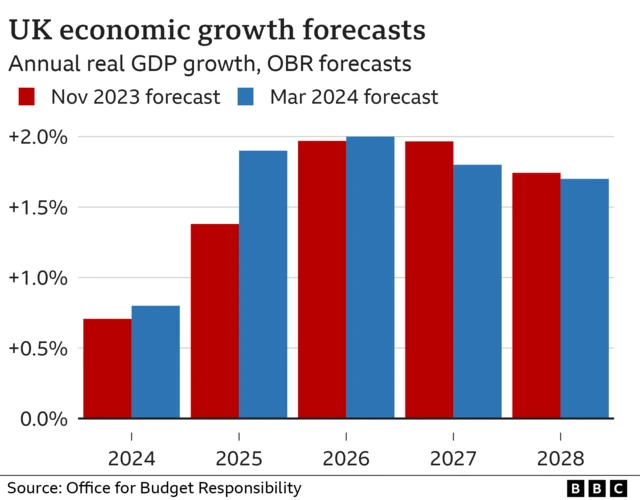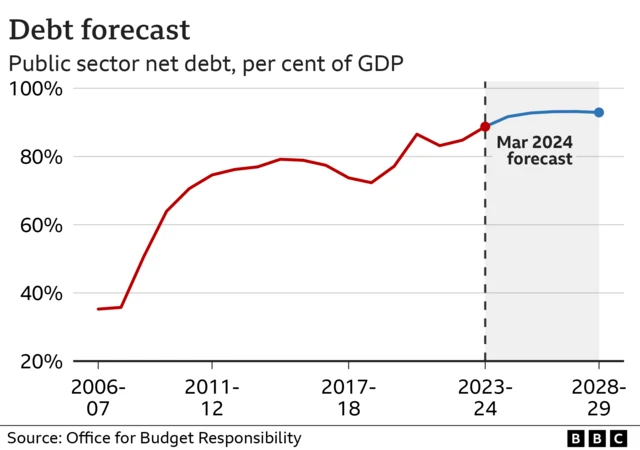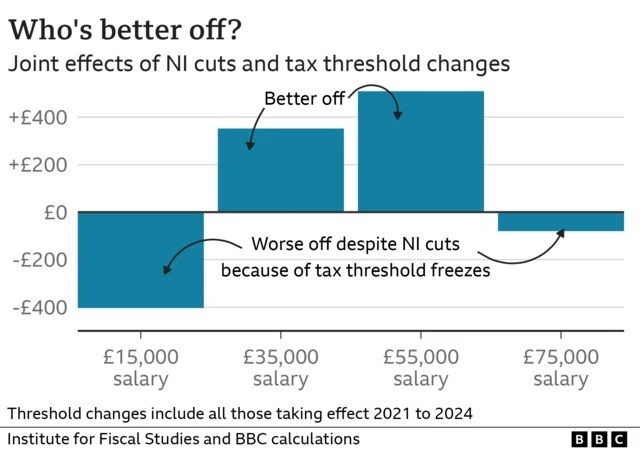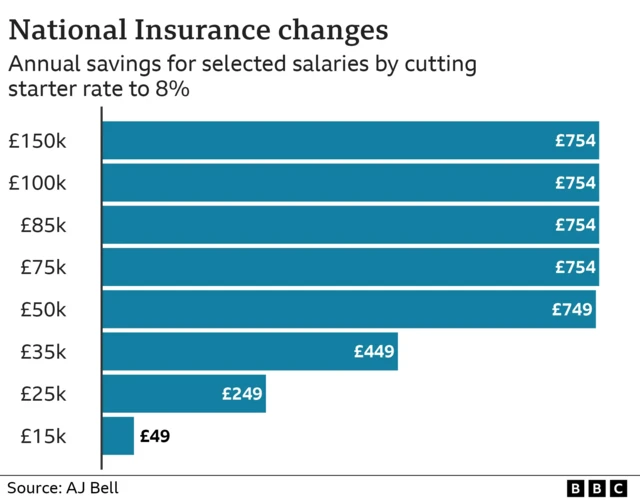A money-saving part of a long-term plan? Or a 'last desperate act'?published at 16:57 GMT 7 March 2024
Barbara Tasch
Live reporter
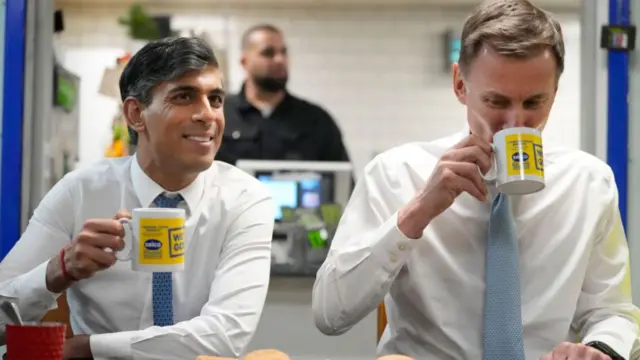 Image source, Getty Images
Image source, Getty ImagesThe last two days have been busy. We had the Budget itself, all the reaction, and the many workings out over how these changes will affect you and your finances.
But it was the politics that were front and centre, with the general election looming large.
The cuts to tax paid by workers were hailed by some as election-year goodies, while others thought the relatively small number of measures hinted at more to come.
Indeed, an optimistic Jeremy Hunt said this year’s Budget was all part of a long-term plan. Meanwhile, Sir Keir Starmer said it was the Tory government’s “last desperate act”, with people paying "more and more for less and less".
Thanks for joining and for reaching out with all your questions. For more in-depth coverage, you can find loads of explainers, analysis and reaction to the Budget here.
Today’s page was edited by Nathan Williams, Sam Hancock, Owen Amos and Emily Atkinson. The writers were Jacqueline Howard, Thomas Mackintosh, Jake Lapham, Ali Abbas Ahmadi, Malu Cursino and me.

